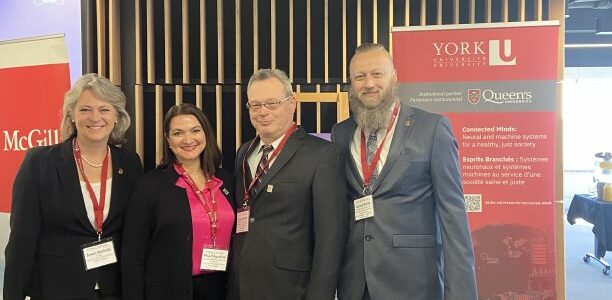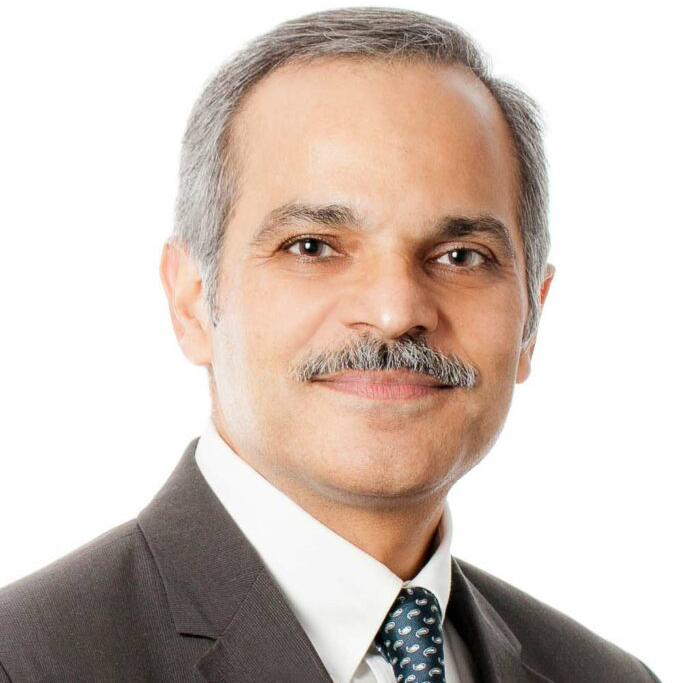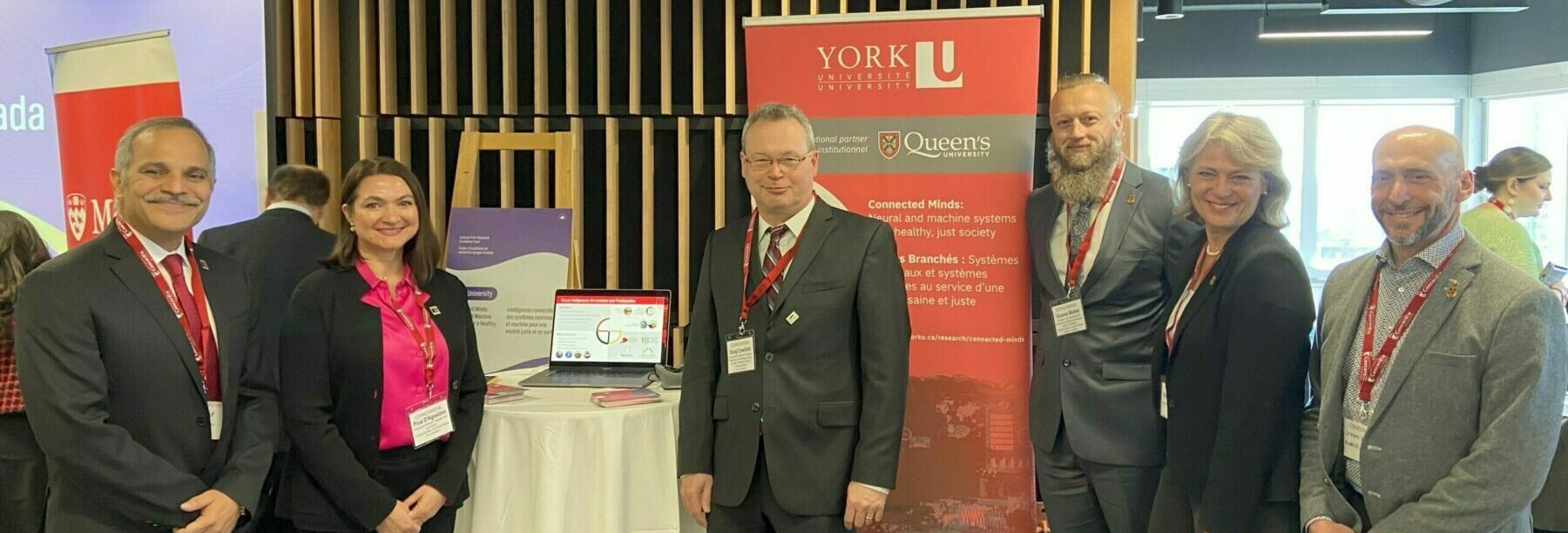York University is leading a $318.4-million, interdisciplinary, first-of-its kind research project that aims to advance the understanding of relationships between human minds and machines, and how society – or as the researchers have dubbed it, the “techno-social collective” – can evolve with these emerging technologies in a socially responsible way.
An initiative focused on inclusive technology research that partners with Queens University, “Connected Minds: Neural and Machine Systems for a Healthy, Just Society” is supported by $105.7 million in funding from the federal government’s Canada First Research Excellence Fund (CFREF) with $82.8 million dedicated to York and $22.8 million to Queens.

Connected Minds will fund 35 strategic faculty hires, partner-focused seed, team, and prototyping grants, knowledge mobilization and commercialization activities, and an ambitious multi-institutional micro-credential training program with 385 trainees and cross-sector stakeholders. All activities will require interdisciplinary participation, and projects that benefit Indigenous and other equity-deserving groups will be prioritized.
“The current technological revolution will have transformative positive impacts, and likely unintended negative impacts, on humanity for generations to come,” says Doug Crawford, York University Distinguished Research Professor in Neuroscience and inaugural scientific director of Connected Minds. “To predict these impacts and steer toward positive outcomes, one requires transdisciplinary expertise, multi-sector community engagement and research and training at levels that can only occur in a large-scale program. We thank CFREF for providing Connected Minds with the resources to lead Canada and the world in this timely and critical enterprise.”
The directorate will be shared with York University Professor Pina D’Agostino, intellectual property and technology law expert, as vice director, and Professor Sean Hillier, Indigenous health scholar, as associate director. Engineer and neuroscientist Professor Gunnar Blohm joins as the vice director from Queen’s University.
Experts across various fields – from eight of York’s Faculties and three of Queens’ – will focus on how emerging technology is transforming society and work to find a balance between the identified risks and benefits for humanity. The program will engage more than 50 community partners – from hospitals, policymakers, artists, industry partners and Indigenous communities – with emphasis on inclusive, interdisciplinary research.
Connected Minds will combine York’s leadership in science and technology research, and longstanding institutional priorities in social sciences, arts and humanities, with Queens’ strengths in neuroscience, health and AI, as well as with partners across multiple sectors.

“York is an international leader in interdisciplinary research involving artificial intelligence and other disruptive technologies, social justice, and human science like biology, neuroscience, philosophy, and psychology,” says Amir Asif, York University vice-president, research and innovation. “The government’s substantial investment will unite York’s incredible strengths with Queen’s health specialties to chart new territory in socially responsible, community-engaged research for a rapidly changing digital world.
“Connected Minds is the result of the incredible work and collaborative efforts of our faculty and staff, and will enable Canada to lead the creation of more inclusive technologies for the world.”
Some of the program’s proposed projects include explorations into a more inclusive metaverse, virtual reality and community organizing, technologies for healthy aging, Indigenous data sovereignty, and how the human brain functions when people interact with AI versus each other.
A new, dedicated Indigenous research space on York’s Keele Campus supports the program’s, and the University’s, focus on decolonizing, equity, diversity and inclusion (DEDI).
“Connected Minds is informed by Indigenous perspectives and priorities to achieve outcomes that are culturally relevant and responsive to Indigenous ways of being and doing that impact how we think about and engage in life, health and education,” says Hillier, who is also director of York University’s Centre for Indigenous Knowledges & Languages. “Our work will seek to address the unexpected consequences of technological innovation, like the growing digital divide for Indigenous communities to access remote health care, and issues of data sovereignty, ownership and digital colonialism.”
The CFREF funding positions York as a national leader in creating and adopting scientific and technological innovation and an agent of change in the promotion of a healthy and just techno-social collective.
“We believe our inclusive, interdisciplinary approach that aligns with the UN Sustainable Development Goals makes York University the perfect place for anticipating the way humans and machines will, and should, connect in an equitable society,” says D’Agostino.
Watch a video on Connected Minds below.


